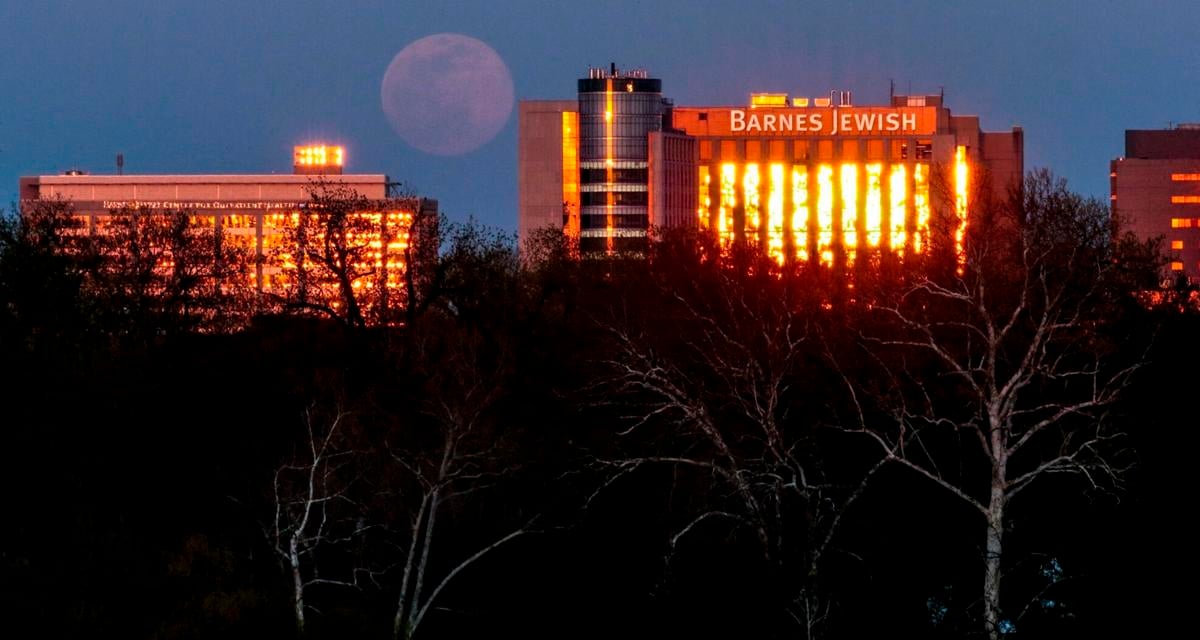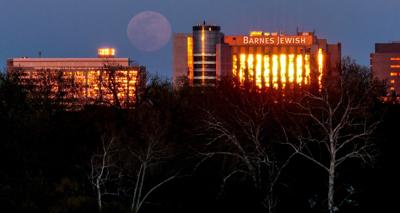ST. LOUIS — BJC HealthCare’s plan to combine with the Saint Luke’s Health System would mark the largest local hospital merger in recent memory.
The combined organization would have more than two-dozen hospitals in three states. BJC reported $6.3 billion in revenues last year, and Kansas City-based Saint Luke’s reported $2.4 billion.
The hospital systems have yet to work out the details and say they plan to have a definitive agreement by the end of the year. The plan comes as hospitals increasingly look to grow through consolidation.
“We haven’t seen a cross-market merger of two large health systems in this region before,” said Louise Probst, executive director of the St. Louis Area Business Health Coalition. “It probably won’t be the last.”
People are also reading…
Independent hospitals and small chains have become rarer in the U.S., and the COVID-19 pandemic made clear to hospitals the advantages they could have as part of large systems. The backing of a larger organization means better leverage in negotiations with insurers, more purchasing power for supplies and a network to lean on during staffing shortages.
BJC and Saint Luke’s have, for more than a decade, been part of a collaborative with other hospitals in Illinois and southern Missouri to share best practices and jointly purchase supplies.
Details have yet to be released on the eventual structure of the combined organization, and there will be several questions about the impact on patients. The health systems say they will keep their own names and operate with two headquarters. BJC’s chief executive will become CEO of the system, but the initial board chair will come from Saint Luke’s.
Another local health system, Chesterfield-based Mercy, disclosed in January plans to bring in Cape Girardeau-based SoutheastHEALTH. Mercy took over Jefferson Regional Medical Center in Crystal City, now Mercy Hospital Jefferson, in 2013. The independent St. Anthony’s Medical Center joined Mercy in 2017 and is now known as Mercy Hospital South.
Last year, SSM Health agreed to acquire SLUCare Physician Group, the entity that staffs St. Louis University’s medical school.
Tim Greaney, a professor at University of California Law San Francisco who studies antitrust issues in health care, said it’s common for health systems to look for acquisitions outside their markets. California-based Kaiser Permanente, for example, revealed plans earlier this year to acquire Geisinger Health, a smaller, Pennsylvania-based group.
That “reach across the country” surprised some, Greaney said.
But because the Federal Trade Commission has stopped mergers in cases with significant geographic overlap “pretty easily,” health systems are pushing across states or over state borders to expand.
The FTC oversees hospital mergers, and state attorneys general also have the power to challenge them in court.
“It’s very hard for hospitals to acquire hospitals in their own market,” Greaney said.
The FTC could investigate the BJC-Saint Luke’s merger, but experts say that’s unlikely since the systems’ hospitals aren’t in the same areas.
BJC HealthCare on Monday announced it is expanding its free gun lock pilot program at St. Louis Children's Hospital to more than 20 locations after a record-setting 163 children were treated there for gunshot wounds in 2022. Dr. Lindsay Clukies, a Washington University emergency physician at St. Louis Children's Hospital explains. Video courtesy BJC
















